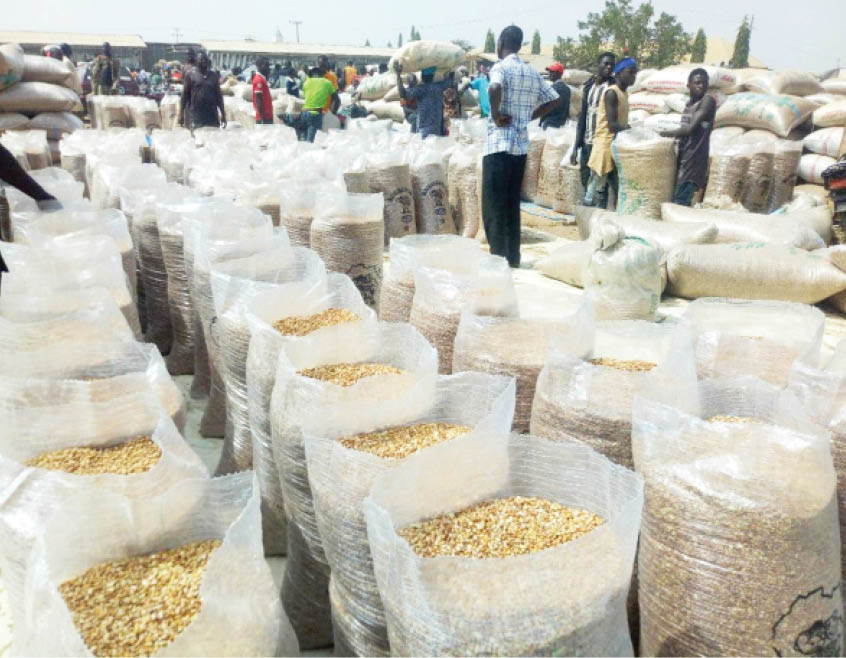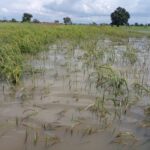On Monday, July 8, 2024, the Federal Government took a long-expected step to tame hunger by suspending tariffs on the importation of staple food items into the country. The strategy was meant to liberalise the availability of foreign produced rice, wheat, maize, beans, and other food items commonly consumed by Nigerians. The window for duty-free importation of the food items announced was for 150 days, effectively lifting the embargo imposed on the importation of food through the country’s land borders since the era of former President Muhammadu Buhari.
Though the new strategy is still in the works, we commend the government for taking this necessary step to deal with the hunger that has spread in all parts of the country. The majority of Nigerians have been living from hand to mouth. The food crisis confronting Nigeria may not necessarily be linked to the twin policies of the removal of subsidy on petrol and the devaluation of the Naira. It is exacerbated by the scarcity of food items, as the supply side has been hampered by socio-economic issues and failed government policies.
The trend in crop production in the country in the last few years provided Nigerians with the foreknowledge of the current food crisis. Some data on agricultural production, aggregated by Statista, show that crop production has been dwindling badly since 2022, after reaching about 3.87 percent growth in the fourth quarter of 2021. The rate of production dipped in the first quarter of 2023 when the growth rate was put at 0.9%. The situation was alarming, compared to the first quarters of previous years. In 2019, the growth recorded was 3.29%; first quarter of 2020 (2.38%); first quarter of 2021 (2.31%) and first quarter of 2022 (3.16%), but the growth sank to 0.9% in the first quarter of 2023. Though the growth rate in the second quarter of 2023 increased, it did so marginally (1.5%). The county has not recovered from the decline in crop production since then, as strategies put in place by the government were implemented in the breach.
It is common knowledge that the dangerous decline in crop production was caused, primarily, by the activities of bandits. The country is equipped with the potential to be self-sufficient in food production, but for the activities of bandits who have driven millions of farmers from farmlands across Nigeria. In Zamfara, Katsina and Kaduna states, bandits have frustrated the cultivation of common food items like rice, guinea corn, maize, Irish potatoes, and beans. The North-Central states of Benue, Plateau and Niger, the hub of yam, Irish potatoes, and maize production, have not been defended from raids by rampaging bandits. Not content with dispossessing local farmers of their lands, the outlaws have destroyed villages, instituted their own kinds of governance, and imposed levies on the few farmers who could not escape to safer towns and villages. Since the last 10 years when the crisis began as mere farmers-herders conflict, efforts to deal with it through dialogue, persuasion, and feeble military operations did not yield the desired result. The half-hearted approach to the lawlessness has given birth to food shortage and widespread hunger across Nigeria.
- How growing maize with beans can improve silage quality
- Small-scale rice mills packing up over high paddy, power cost
Apart from the activities of outlaws, failed government policies and the lack of implementation of agricultural policy strategies have hampered food production. In July 2023, after removing fuel subsidy, President Bola Ahmed Tinubu promised to invest part of the funds saved through the non-payment of subsidy in agriculture. He declared a state of emergency on food insecurity and outlined numerous brilliant measures through Mr. Dele Alake, his spokesman at the time. The president promised measures like the “activation of land banks… [about 500,000 hectares] already mapped land that will be used to increase the availability of arable land for farming, which will immediately impact food output. Mechanisation and land clearing- the government will also collaborate with mechanisation companies to clear more forests and make them available for farming. River basins- there are currently 11- that will ensure the planting of crops during the dry season with irrigation schemes that will guarantee continuous farming production all year round, to stem the seasonal glut and scarcity that we usually experience. The government said it would deploy concessionary capital or funding to the sector, especially towards fertiliser, processing, mechanization, seeds, chemicals, equipment, feed, labour, etc. These measures are yet to be implemented, one year after the promises were made.
Though food import, as an interim measure, is appropriate for dealing with the current emergency, the government must encourage security agencies to take on bandits and dispossess them of the massive Nigerian lands they have appropriated. The authorities must use force as a strategy to debunk the widespread falsehood that certain parts of the country are out of the reach of the government. Reclaiming farmland is a baseline approach to quenching hunger in the land, but this must be accompanied with the provision of improved seedlings that can produce more yields per hectare, fertiliser, herbicides, and other inputs that will facilitate massive food production. The Tinubu government must do everything possible to ensure that all lands are reclaimed. We have nowhere to turn, but to face our common enemies – bandits – in a battle we must win.

 Join Daily Trust WhatsApp Community For Quick Access To News and Happenings Around You.
Join Daily Trust WhatsApp Community For Quick Access To News and Happenings Around You.

